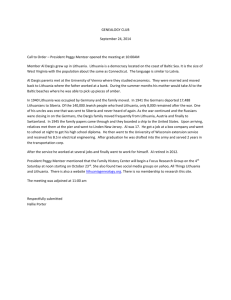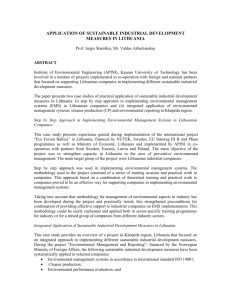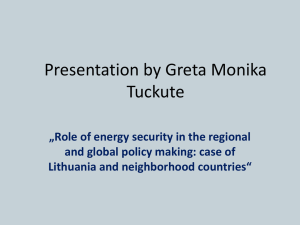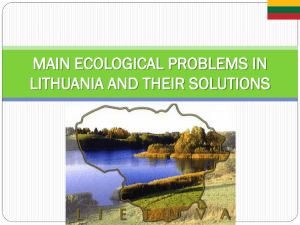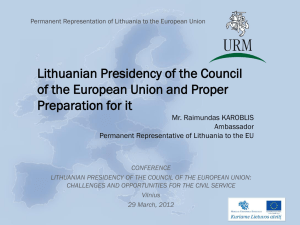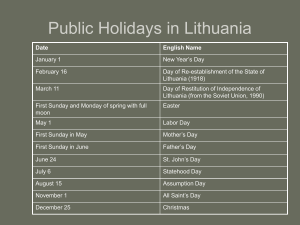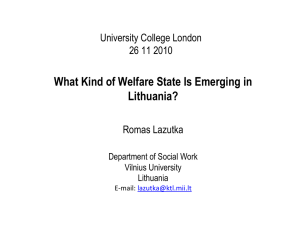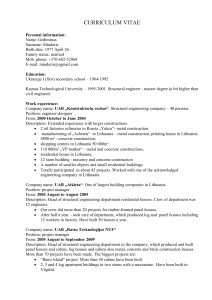Lithuania
advertisement
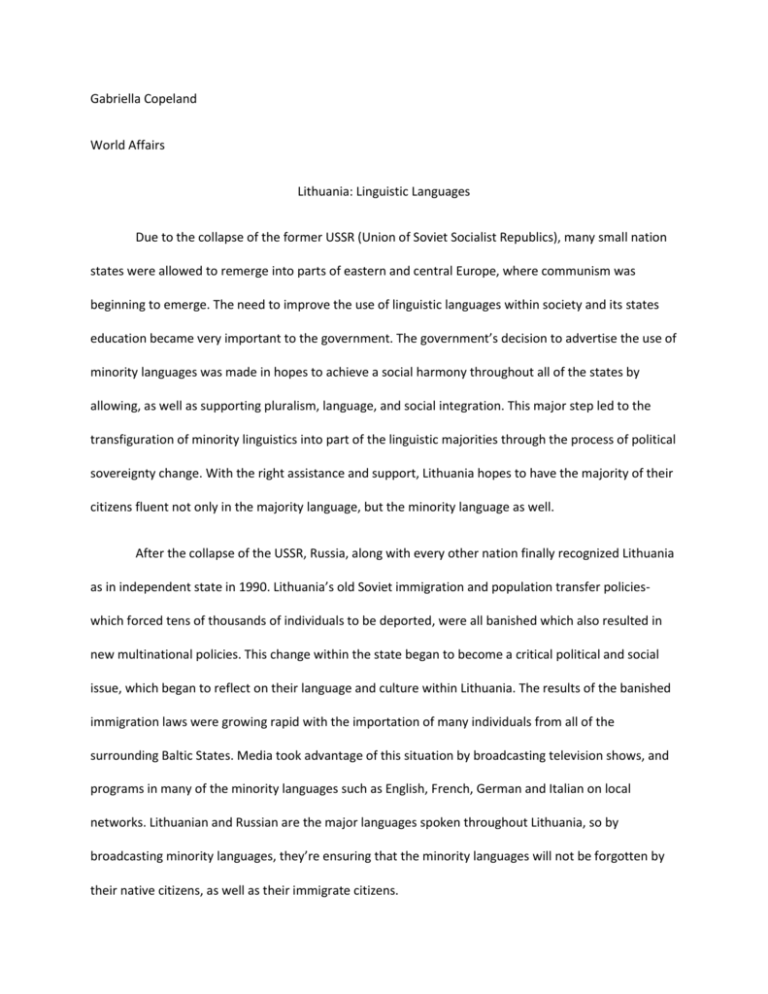
Gabriella Copeland World Affairs Lithuania: Linguistic Languages Due to the collapse of the former USSR (Union of Soviet Socialist Republics), many small nation states were allowed to remerge into parts of eastern and central Europe, where communism was beginning to emerge. The need to improve the use of linguistic languages within society and its states education became very important to the government. The government’s decision to advertise the use of minority languages was made in hopes to achieve a social harmony throughout all of the states by allowing, as well as supporting pluralism, language, and social integration. This major step led to the transfiguration of minority linguistics into part of the linguistic majorities through the process of political sovereignty change. With the right assistance and support, Lithuania hopes to have the majority of their citizens fluent not only in the majority language, but the minority language as well. After the collapse of the USSR, Russia, along with every other nation finally recognized Lithuania as in independent state in 1990. Lithuania’s old Soviet immigration and population transfer policieswhich forced tens of thousands of individuals to be deported, were all banished which also resulted in new multinational policies. This change within the state began to become a critical political and social issue, which began to reflect on their language and culture within Lithuania. The results of the banished immigration laws were growing rapid with the importation of many individuals from all of the surrounding Baltic States. Media took advantage of this situation by broadcasting television shows, and programs in many of the minority languages such as English, French, German and Italian on local networks. Lithuanian and Russian are the major languages spoken throughout Lithuania, so by broadcasting minority languages, they’re ensuring that the minority languages will not be forgotten by their native citizens, as well as their immigrate citizens. While in the process of many transitions, a new range of laws and languages were introduced across all of the Baltic States. This allowed them to be able to compensate all the discriminatory wrongs that were caused by the Soviet government. These laws were able to strengthen and revise the states sociolinguistic functions of the majority languages. While they were strengthening the majority languages, they were also making sure to provide protection for all of the languages, and cultures that were once considered to be minorities. Lithuania now offers foreign language courses in their education system, and it is mandatory that a child takes at least one of these classes. Whether it is Italian, English, or even Polish, Lithuania is ensuring that their students are not only fluent in their native language, but also in a minority language that they are allowed to study beginning as early as fifth grade. With all of the change and revisions going on within Lithuania, their two biggest ethnic groups have responded entirely differently to this process. The Russians disagree with many of the new revisions, however, the Poles seem to actually enjoy, and encourage, the new changes. The government in Lithuania has made it one of its main goals to accommodate all if their needs to the overall society, whether that be protecting the languages that are still in place, or once forgotten, or protecting the diverse cultures that reside within the state. But one thing is clear; they are succeeding thus far with the creation of many bilingual schools for the public, the media, as well as the many growing families that have many native linguistic languages. Society within Lithuania is changing rapidly, and it is changing for the better.

